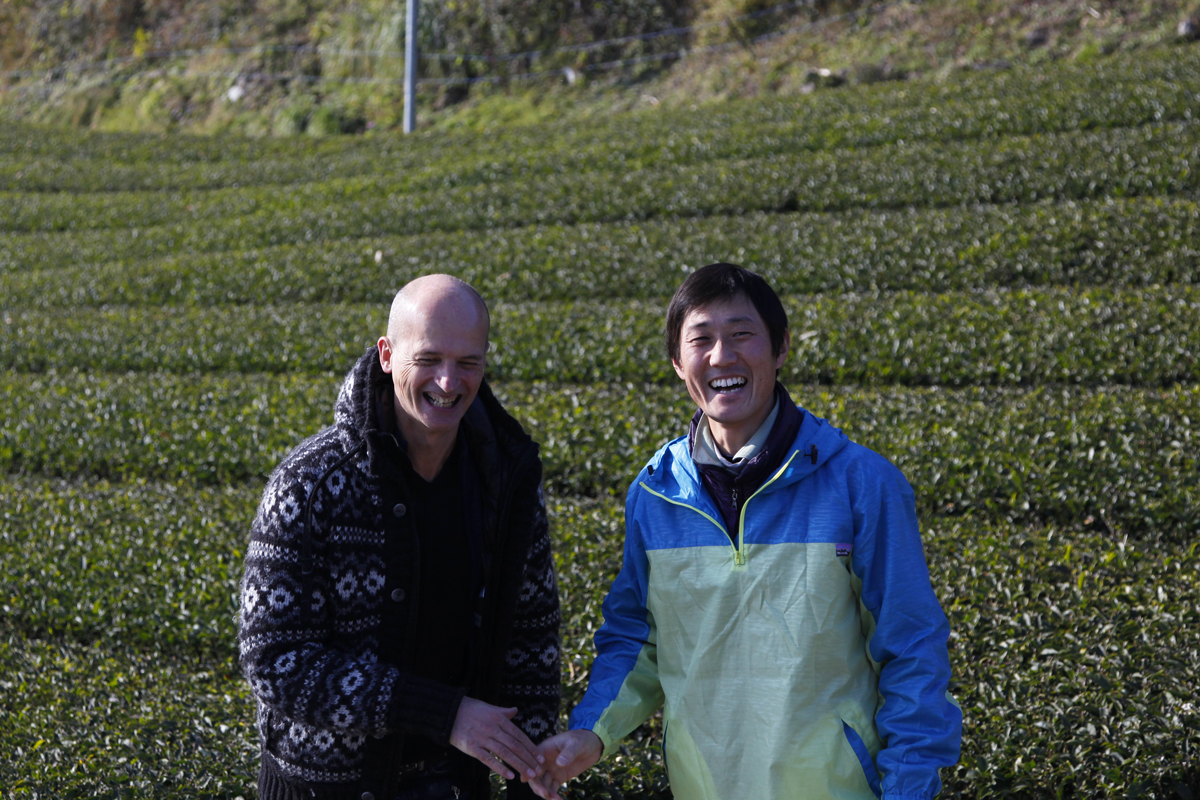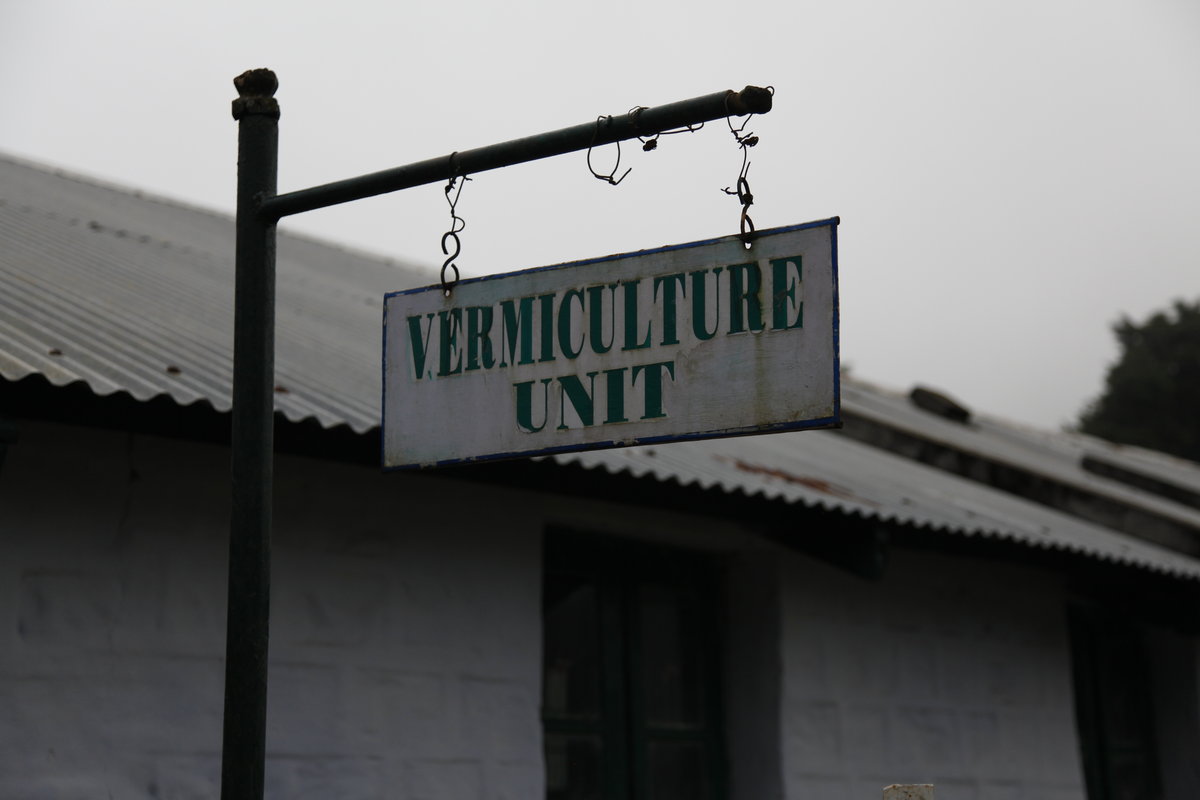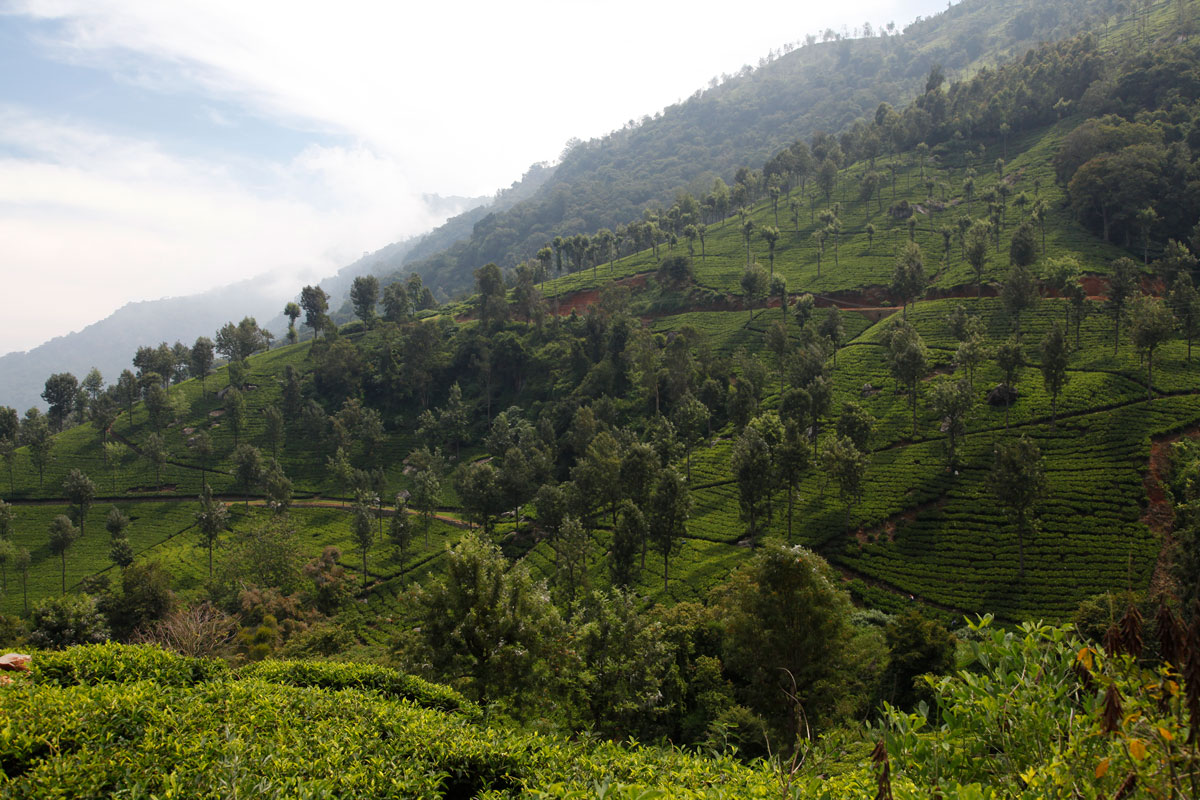The Japanese city of Fukuoka may not get many Western tourists, but if you go there and you like new gastronomical experiences, you should go to Yorozu. You need to book in advance, you need to speak Japanese, or go with someone who speaks the language, it’s essential, and you need a couple of hours free. Then, let yourself be guided, and Suguru Tokubuchi will introduce you to pairings of food with tea and various alcohols, dishes prepared in front of you in an intimate setting, which makes every sip even more precious, every mouthful chosen to accompany one of the cocktails. It’s a unique experience.
ARCHIVE FOR February 2018
In Japan, organic farmers, father and son
I’d like to introduce you to Kitano Shuichi. Of all the farmers I’ve met in Japan, he’s the most passionate and inspiring about organic practices. He’s been using these methods for 30 years, introduced by his father. The latter, convinced of the health benefits of organic tea, suffered financially for ten years, due to very low yields, but he pulled through. Today, he sells his tea for a good price because demand for organic tea is higher. Kitano Shuichi and his father make their own compost, while others buy it in from outside. But most significantly, they never use anything to do with animals in their compost. So that means no cow manure, for example. They believe in biodynamic methods and use them successfully. They’re so proud of their compost they insist you taste it. But if you want to know their exact recipe, you can ask all you like but they’ll reveal nothing save their good humour, with a smile.
Our friends the earthworms
Tea plantations that use organic methods avoid all conventional pesticides and fungicides. They limit the spread of undesirable elements through the use of natural predators or repellents. And to enrich the soil, to make up for the nutrients that the tea plants take up, especially in intensive farming, they need to add a significant amount of organic matter. Organic compost can be bought in, or even better, produced on the plantation. One way of doing this is using vermiculture, a fairly common practice in India. Millions of earthworms are fed cattle manure mixed with chopped up banana leaves, for example. The worms produce excrement, and it is this excrement that is deposited around the base of each tea plant.
Mountains in Southern India
When you think of Southern India, you think of colourful temples, ancient spice trading posts, beaches lined with palm trees, boats gliding along complex networks of canals and backwaters, and luxuriant gardens. Southern India is less well-known for its mountains. Yet what are called the Ghats, literally “steps”, peak at more than 2,000 metres above sea level. This altitude and climate is well suited to tea plants.




